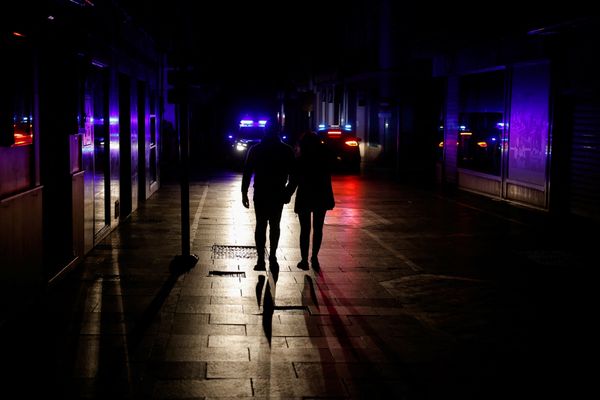MADRID, April 29 — Spain and Portugal switched their power back on after the worst blackout in their history, though authorities offered little explanation for what had caused it or how they would prevent it happening again.
Traffic lights were back on, train and metro services slowly returned, and schools reopened. Commuters battled with delays to get back to work after an outage that had left people stranded in lifts and cut off from phone contact with their families.
The sudden outage saw the equivalent of 60 per cent of Spanish demand drop in five seconds around midday on Monday.
While Spanish grid operator REE ruled out a cyber attack as the cause on Tuesday, Spain's High Court said it would investigate whether the country's energy infrastructure had suffered a terrorist strike, while Prime Minister Pedro Sánchez said his government had not ruled out any hypothesis.
"We must not rush to (conclusions) and (commit) errors through haste. We will find out what happened in those five seconds," he said.
REE said it had identified two incidents of power generation loss, probably from solar plants, in Spain’s southwest that caused instability in the electric system and led to a breakdown of its interconnection with France.
Spain is one of Europe's biggest producers of renewable energy, and the blackout sparked debate about whether the volatility of supply from solar or wind made its power systems more vulnerable.
In February, Redeia, which owns Red Electrica, warned in its annual report that it faced a risk of "disconnections due to the high penetration of renewables without the technical capacities necessary for an adequate response in the face of disturbances".
Investment bank RBC said the economic cost of the blackout could range between €2.25 billion (RM11.07 billion) and €4.5 billion (RM22.14 billion), blaming the Spanish government for being too complacent about infrastructure in a system dependent on solar power with little battery storage.
SEAT said power returned to its Barcelona car plant at 1am on Tuesday, but that it still was not at full production.
Volkswagen said its plant in Navarra lost a day of production — equivalent to 1,400 cars — as it could not restart until 2.30pm on Tuesday.
[caption id="attachment_399287" align="aligncenter" width="1227"] Tourists check into a hotel without electricity during a power outage which hit large parts of the country, in Ronda, Spain, on April 28, 2025. — Picture by REUTERS[/caption]
Tourists check into a hotel without electricity during a power outage which hit large parts of the country, in Ronda, Spain, on April 28, 2025. — Picture by REUTERS[/caption]
State of emergency
Javier Diaz, a 24-year-old student, was forced to sleep in Madrid's Movistar Arena, a music venue, after finding himself stranded in the capital. Luckily, he had just finished walking the Camino de Santiago, a Christian pilgrimage route in northern Spain, and had a sleeping bag, "so we had quite a good night".
Madrid authorities put on free buses to get people to work on Tuesday, and the metro and some trains resumed operating, although with delays. Construction worker William Galicia, 39, had seen three buses pass by completely full.
"We will have to be lucky for one with a bit more space inside so we can get in," he said.
On Monday, a state of emergency was declared across many Spanish regions, and 30,000 police officers were deployed. In Atocha station in Madrid, police and Red Cross workers handed out blankets and bottles of water.
Regional emergency services said that three people died from suspected carbon monoxide poisoning in the northwestern region of Galicia after switching on a generator to power an oxygen machine for one of the victims.
Bars and restaurants counted the cost of lost produce after fridges and freezers were switched off for more than eight hours.
"(We are) scared it will go bad, that we have to throw everything away. We do not know if the insurance will cover it," said Maria Luisa Pinol, 63, owner of the Granja Isabel bar in Barcelona, which had to shut on Monday night.
In Portugal, the government said hospitals were back up and running, airports were operational albeit with delays in Lisbon, while the capital's metro was restarting operations and trains were running.
Energy expert Carlos Cagigal said the outage probably happened because Spain's nuclear plants were not operating at the time, meaning all of its electricity was coming from renewable sources that were feeding saturated substations.
When one of those substations failed and there was no adequate backup, safety protocols kicked in and the system disconnected.
"Given these system imbalances...there is a small margin of risk of this happening again," he said.
Opposition conservative People's Party leader Alberto Núñez Feijóo said the government should rethink its plan to shutter nuclear plants.
But on Tuesday, Sánchez ruled out an excess of renewable energy as a cause of the network's collapse.
He said Spain's nuclear power stations still had not resumed operating on Tuesday, which showed they were no more resilient than renewables.
Demand at the time of the blackout was relatively low, and there was ample supply.
"What happened yesterday was an exceptional event in normal, everyday circumstances," he said.
— Reuters
[caption id="attachment_399288" align="aligncenter" width="1218"] A man points at screens showing train information at Joaquin Sorolla train station, after power begins to return following a huge outage that hit Spain and Portugal, in Valencia, Spain, on April 29, 2025. — Picture by REUTERS[/caption]
A man points at screens showing train information at Joaquin Sorolla train station, after power begins to return following a huge outage that hit Spain and Portugal, in Valencia, Spain, on April 29, 2025. — Picture by REUTERS[/caption]




